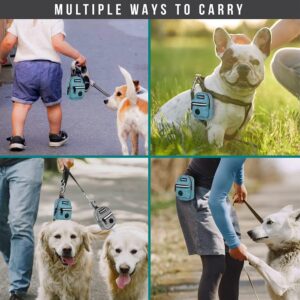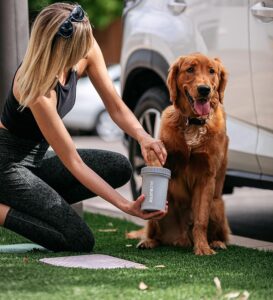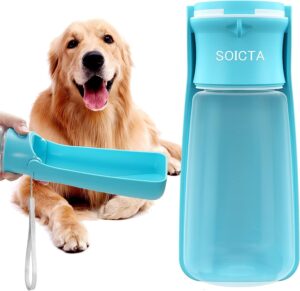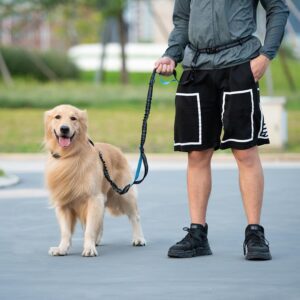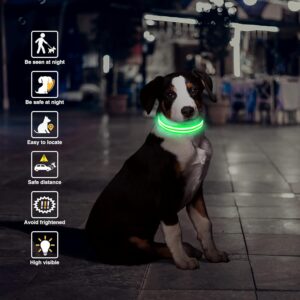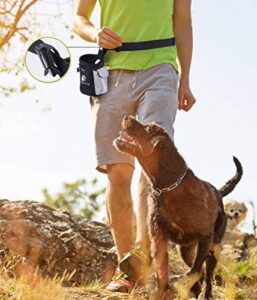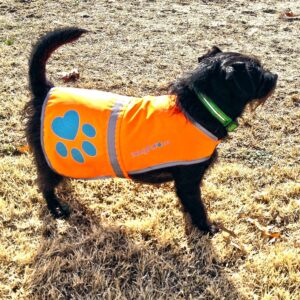 |
Key Points:
|
| Selecting the right dog walker ensures your dog’s safety, happiness, and well-being. Start by assessing your dog’s unique needs, such as solo or group walks, and finding a walker with experience, first-aid training, and proper safety measures. Arrange a meet-and-greet to observe their interaction with your dog and ensure compatibility.
Reliable communication, clear policies, and positive references are crucial for peace of mind. Trust your instincts and choose someone who is patient, professional, and truly passionate about dogs. A good dog walker enhances your dog’s quality of life and fosters a trusting relationship with you and your pet. |
|
1. Understand Your Dog’s Needs
Every dog has unique needs depending on age, breed, energy level, and health. High-energy dogs often need long, active walks, while older dogs may require a slower pace and shorter distances. To find a walker who can meet these needs, consider:
- How long and how often should your dog walk?
- Are there any health issues or special needs?
- Does your dog have behavioral quirks, such as leash reactivity or anxiety around other dogs?
Understanding your dog’s requirements will ensure you find a walker to provide safe and enjoyable experiences.
2. Decide on Walk Type: Solo or Group Walks
Dog walkers typically offer two options:
- Solo Walks are best for dogs that prefer one-on-one attention or may be anxious or reactive around other dogs. Though often more costly, solo walks ensure the walker’s focus is entirely on your pet.
- Group Walks are ideal for social dogs who enjoy interacting with other pets. They are often more budget-friendly and encourage socialization. Ensure that other dogs in the group are compatible with yours.
If you’re uncertain, ask the walker to conduct a test walk to assess your dog’s comfort level in a group setting.
3. Look for Professional Training and Experience
A knowledgeable dog walker knows more than just the basics. Look for someone who:
- Has prior experience working with different breeds and personalities.
- Knows basic first aid and CPR for pets.
- Can handle emergencies, such as an altercation with another dog or sudden health issues.
Ask potential walkers about their previous experience with dogs similar to yours, especially if your dog has special needs. It’s reassuring to have someone who understands the nuances of different breeds and knows how to manage common behavior problems.
What Questions to Ask a Dog Walker
Use this table to guide your conversation and cover all essential areas when interviewing a potential dog walker:
| Question Category | Questions to Ask |
| Experience and Background | – How long have you been a dog walker?
– Have you worked with dogs similar to mine (size, breed, temperament)? |
| Training and Skills | – Do you have any training in pet first aid or CPR?
– How do you handle emergencies or difficult situations with dogs? |
| Walk Routine and Safety | – How long are your walks, and what routes do you typically take?
– Do you always keep dogs on leash or allow off-leash time? |
| Group or Solo Walks | – Do you walk dogs individually or in groups?
– How do you determine compatibility in group walks? |
| Health and Safety Precautions | – What safety equipment do you carry, such as water, waste bags, or first aid supplies?
– Are you insured and bonded? |
| Behavioral Management | – How do you handle common behavior issues like pulling, barking, or leash reactivity?
– What commands do you use on walks? |
| Communication and Updates | – Will you provide updates on my dog’s walks? (e.g., photos, videos, summaries)
– How can I contact you if needed during the walk? |
| Policies and Availability | – What is your cancellation or rescheduling policy?
– Are you available for walks on short notice, holidays, or weekends? |
| Rates and Payment | – What are your rates, and do you offer packages for frequent walks?
– What forms of payment do you accept? |
This table will help ensure you cover all essential areas so you can confidently choose a responsible and compatible dog walker for your pet.
4. Check Reviews and References
Ask the walker for references from past or current clients and search for reviews online. Reading feedback from other pet owners will give you a better understanding of the walker’s reliability, punctuality, and relationship with dogs.
Consider asking:
- How was their overall experience?
- Did they feel their dog was treated kindly and with respect?
- Was the walker consistent in keeping appointments and updates?
A positive reference is invaluable when assessing trustworthiness and reliability.
5. Arrange an Initial Meet-and-Greet
Before hiring, schedule an introductory meeting between the walker and your dog. This allows you to observe how they interact and gauge your pet’s comfort level with the walker. During this session, notice if the walker:
- Approaches your dog calmly and confidently.
- Listen to your input and respond well to any questions you have.
- Can manage any quirks or anxieties your dog displays.
A good walker should know how to communicate with animals and exhibit a calm, patient demeanor. Trust your instincts; keep looking if your dog seems uncomfortable or the walker doesn’t seem engaged.
6. Ask About Their Walk Routine and Safety Protocols
Knowing how the walker plans and handles the walk itself is essential. A well-prepared walker will follow routines that prioritize safety and enjoyment. Here are a few topics to cover:
- Route and location: Ask where they typically take dogs and if they know any nearby dog parks or safe trails.
- Leash policy: Ensure that they understand your dog’s leash needs. If you’re training your dog for off-leash walking, clarify the walker’s experience with this.
- Safety equipment: Check if they carry water, waste bags, and basic first-aid supplies.
Having a thorough conversation on these topics will help you understand their preparedness and attention to detail.
7. Review the Walker’s Communication Practices
Your dog walker should communicate well, keeping you updated on how the walks go and if any issues arise. Ideally, a walker should:
- Send photos or videos of your dog during or after the walk.
- Report any unusual behavior or signs of distress, such as limping, lethargy, or walking refusal.
- Be reachable for quick updates or schedule changes.
Clear communication reassures you that your pet is in good hands, and it’s a sign of a professional dog walker who values your pet’s well-being.
8. Evaluate Their Policies and Contracts
Professional dog walkers often have a written contract detailing their services, policies, and fees. Review these carefully and look out for details like:
- Cancellation policy: Know how they handle last-minute cancellations or rescheduling.
- Weather policy: Find out if they walk in all-weather conditions or cancel during extreme weather.
- Insurance and bonding: Ideally, a professional dog walker will be insured and bonded, providing protection for your pet in case of accidents.
A clear, well-prepared contract shows that the walker is experienced, organized, and dedicated to providing dependable service.
9. Consider Their Personality and Professionalism
Finding someone with the right demeanor is crucial. Look for qualities such as:
- Patience: Handling dogs requires calmness, especially with energetic or excitable pets.
- Consistency: A reliable dog walker who shows up consistently and on time is a must.
- Love for animals: An animal lover will prioritize your dog’s happiness and go the extra mile to ensure they’re comfortable.
Observe how they talk about previous pets they’ve walked and gauge their genuine enthusiasm for working with animals.
10. Understand Their Rates and Payment Options
Dog walking rates vary depending on the length of the walk, the type (solo or group), the location, and the walker’s experience. Solo walks are generally more expensive than group walks, and some walkers may charge extra for special requests.
Discuss the following:
- Hourly or per-walk rates and whether they offer discounts for frequent bookings.
- Payment options and schedule (weekly, monthly, etc.).
- Any additional fees for last-minute bookings, holidays, or emergencies.
Knowing the costs upfront will help you budget effectively and avoid unexpected charges.
11. Trust Your Instincts
After following all these steps, trust your gut feeling. Choosing a dog walker should make you feel comfortable and confident that your pet is in safe, caring hands. If something feels off or the walker doesn’t align with your values, keep searching. Your dog’s happiness and safety are worth the effort to find the right match.
Quick Tips: How Do I Trust a Dog Walker?
Building trust with a dog walker takes time, but here are some quick tips to boost confidence in your choice:
- Check Reviews and References: Reach out to other pet owners for feedback to ensure the walker is reliable.
- Verify Experience: For extra peace of mind, check if they’ve handled dogs like yours and have basic first-aid skills.
- Meet in Person: Set up a meet-and-greet to see how they interact with your dog firsthand.
- Request Updates: A trustworthy walker will send photos or brief updates, so you know your dog is safe and happy.
- Test Walk: Take a trial walk to observe how they handle your dog and any unexpected situations.
Quick Tips: How Would You Describe a Good Dog Walker?
A good dog walker stands out with qualities that ensure both you and your pet feel confident and secure. Here are the key traits to look for:
- Reliable and Consistent: Shows up on time, follows through with scheduled walks, and keeps a consistent routine.
- Patient and Calm: Maintains a composed demeanor, even with excitable or anxious dogs, creating a relaxing experience for your pet.
- Knowledgeable: Understands dog behavior, safety protocols, and basic first aid so they’re prepared for any situation.
- Good Communicator: Provides updates, shares any concerns, and communicates openly with you about your dog’s walks and behavior.
- Genuine Animal Lover: Shows a real passion for dogs, engages with them positively, and makes your pet feel comfortable and happy.
- Observant and Attentive: Notices changes in your dog’s behavior or health, ensuring issues are spotted early and shared with you promptly.
What Does a Dog Walker Need to Know?
A dog walker should know key information about your pet to provide the best care. Here’s an overview:
| Category | Details to Share |
| Dog’s Basic Information | Name, age, breed, size, and unique identifying features. |
| Health and Medical Needs | Allergies, medical conditions, medications, and emergency vet contacts. |
| Behavioral Traits | Temperament, triggers, and reactions to other animals or environments. |
| Walking Preferences | Preferred pace, duration, leash type, and off-leash permissions (if safe). |
| Socialization Level | Comfort level around other dogs, people, or unfamiliar environments. |
| Commands Known | Your dog understands commands (e.g., sit, stay) and hand signals. |
| Safety Precautions | Specific equipment needs (harness, gentle leader), areas to avoid, or safety protocols. |
| Routine and Comfort Items | Usual routes, favorite comfort items like treats or toys, and water for longer walks. |
| Communication Expectations | Frequency of updates, preferred communication methods, and behaviors to monitor. |
| Emergency Protocols | Steps to follow in emergencies and contact numbers for immediate assistance. |
What Are the Duties of a Dog Walker?
A professional dog walker takes on several essential responsibilities:
| Duty Category | Responsibilities |
| Exercise and Stimulation | Provide physical and mental stimulation through varied routes and play. |
| Safety and Supervision | Monitor surroundings, use proper leash control, and avoid hazards. |
| Basic Training Reinforcement | Reinforce basic commands (sit, stay) for consistency in behavior. |
| Socialization | Safely introduce the dog to others (if applicable) to foster social behavior. |
| Health Monitoring | Observe for signs of distress or illness and report concerns to the owner. |
| Feeding and Hydration | Provide water and occasional treats as instructed. |
| Cleanliness and Waste Disposal | Pick up and dispose of waste responsibly during walks, ensuring clean and sanitary walking areas. |
| Communication | Update the owner on notable behaviors, interactions, or health observations. |
| Emergency Preparedness | Be prepared to handle emergencies, such as dog injuries or altercations, by having basic first aid supplies and knowing emergency contacts. |
Top 10 Essential Tools for a Safe and Enjoyable Dog Walking Experience
Final Thoughts
Selecting a dog walker is a big decision and requires careful consideration. It’s not just about getting exercise; it’s about having someone who truly understands your dog’s unique needs and helps them feel safe and happy. By taking these steps—understanding your dog’s needs, having a detailed interview, checking safety practices, and trusting your gut—you’ll be able to find a dog walker who’s a great match for your furry family member.
Choosing the right dog walker can bring peace of mind and enhance your pet’s quality of life. A reliable walker gives your dog a fun, stimulating experience and allows you to relax, knowing it’s safe, happy, and well-cared for even when you can’t be there.


